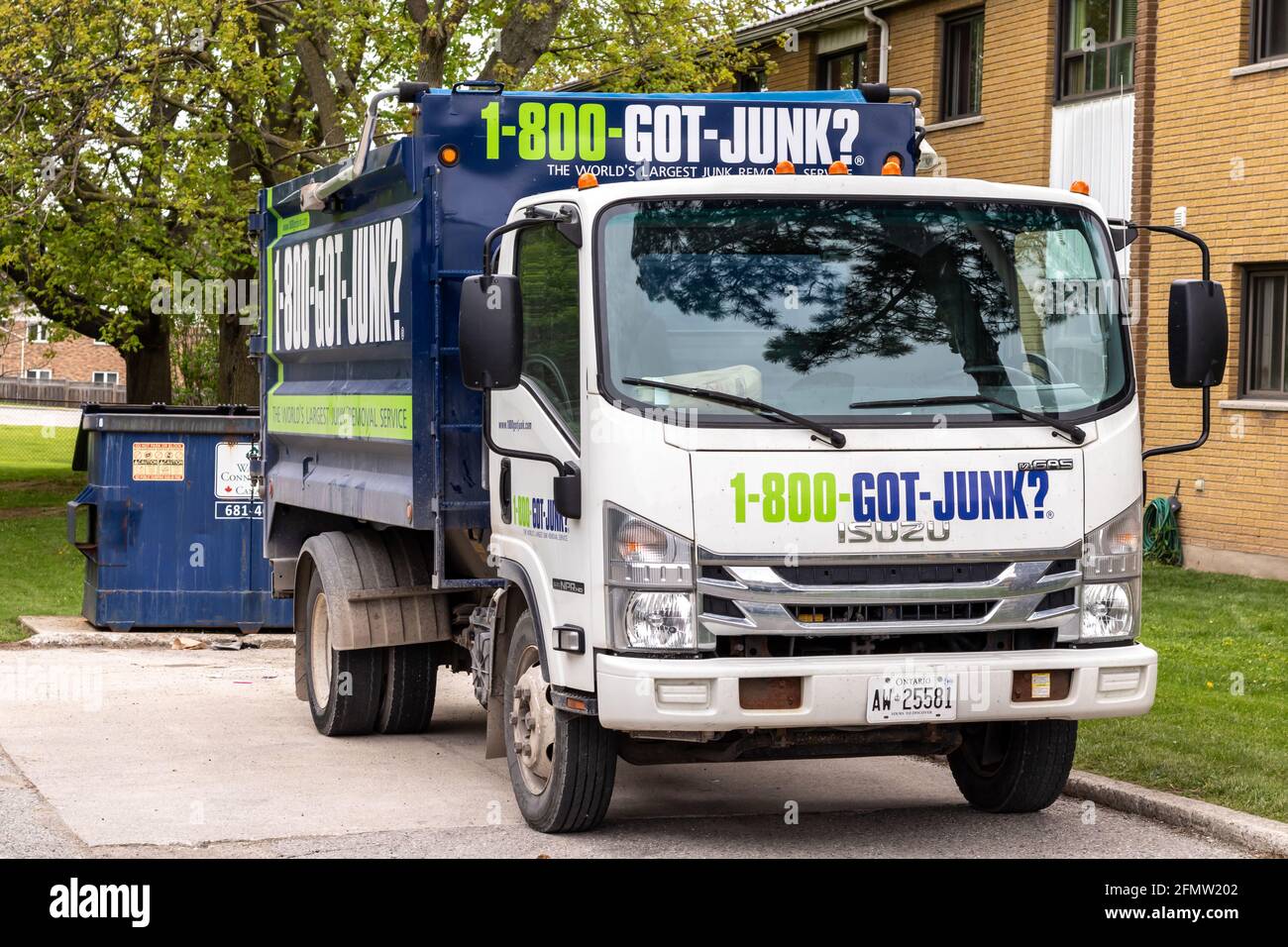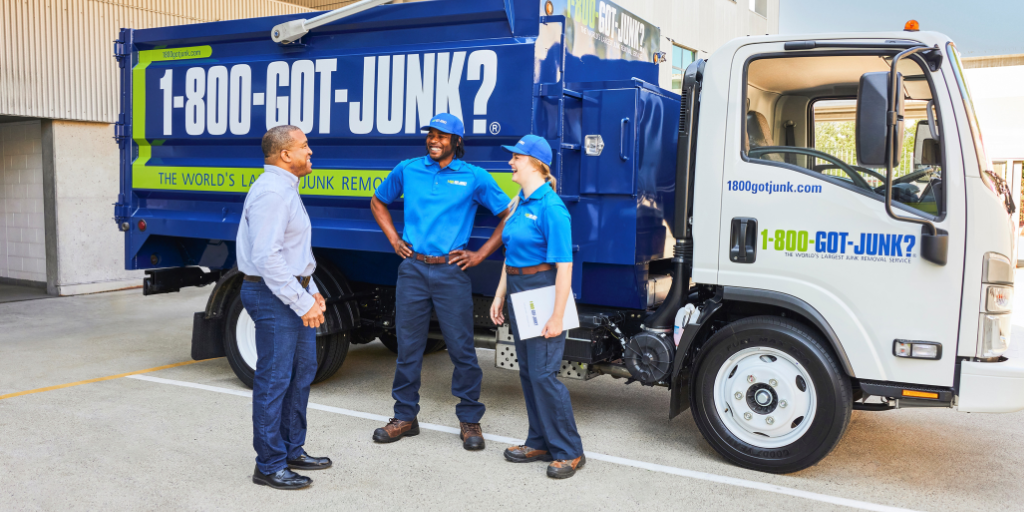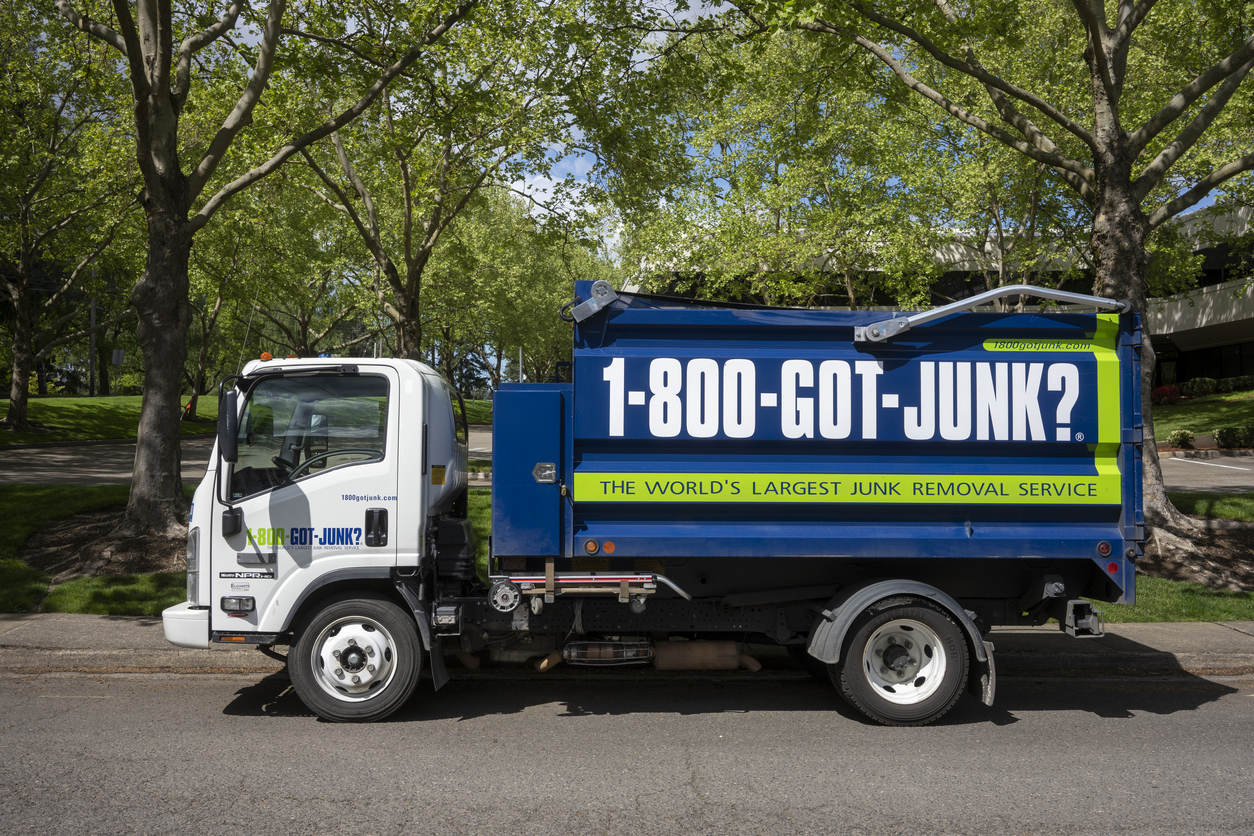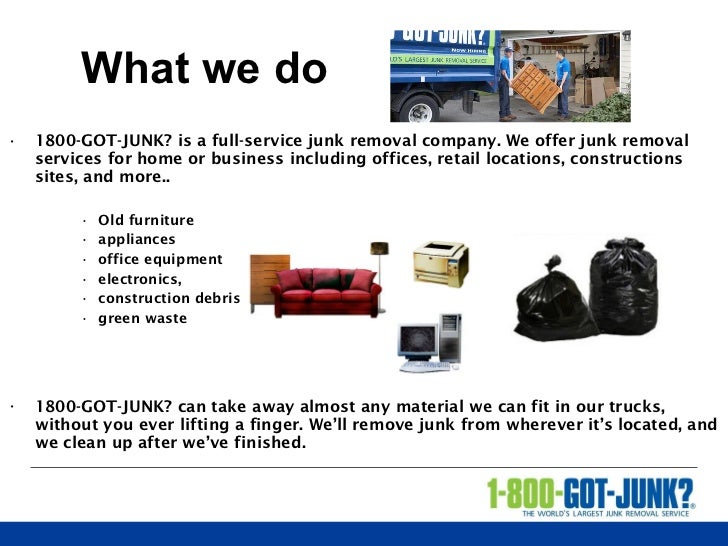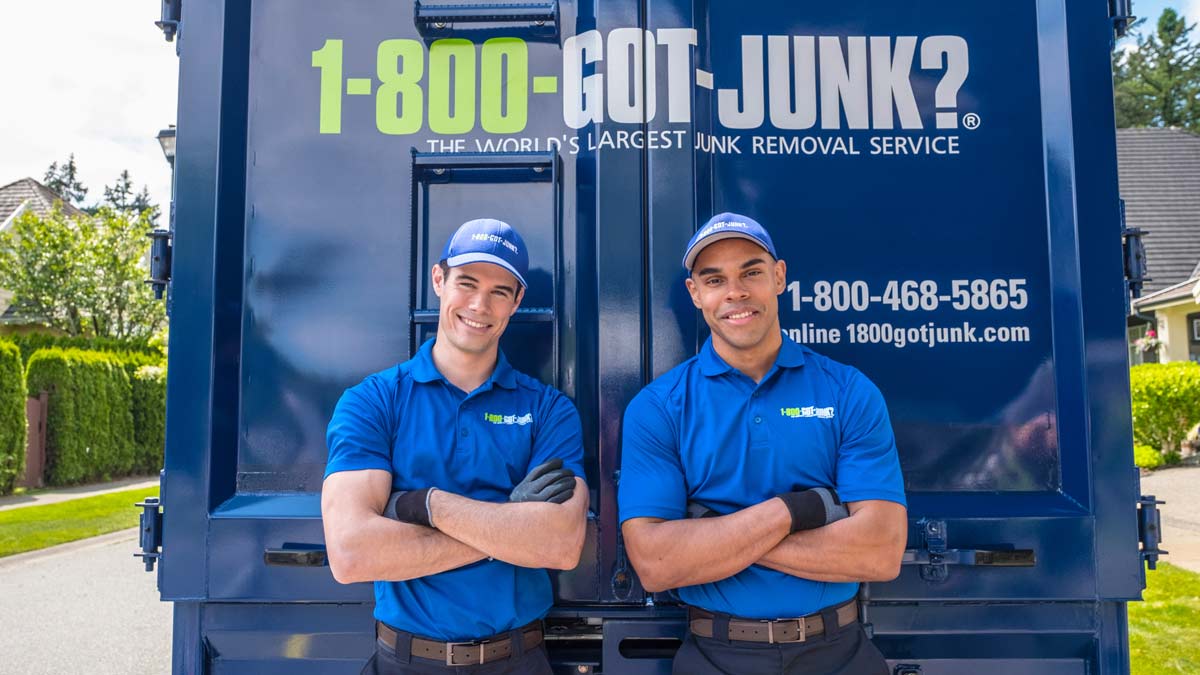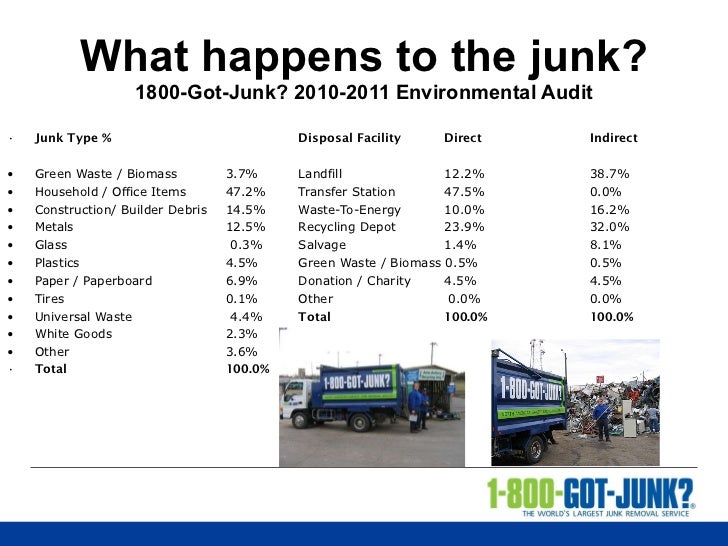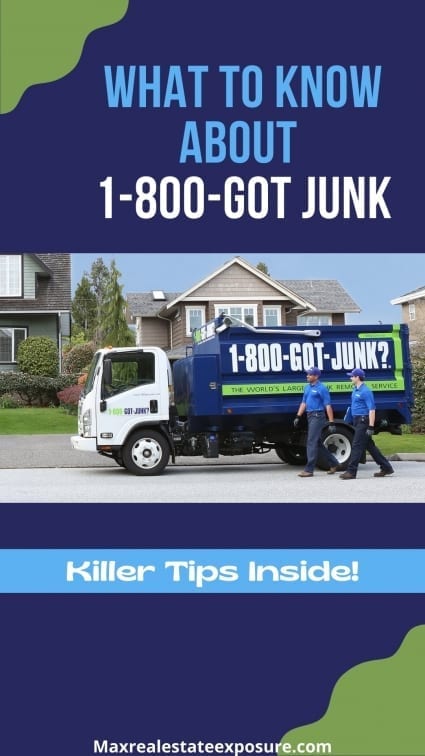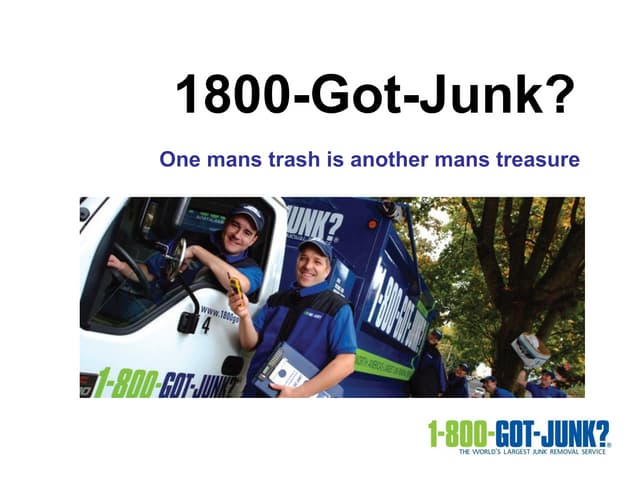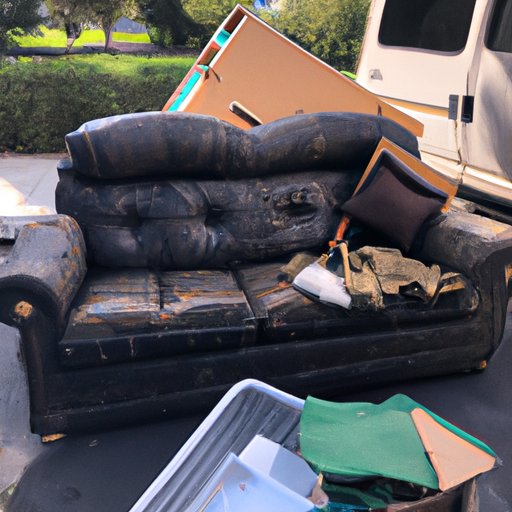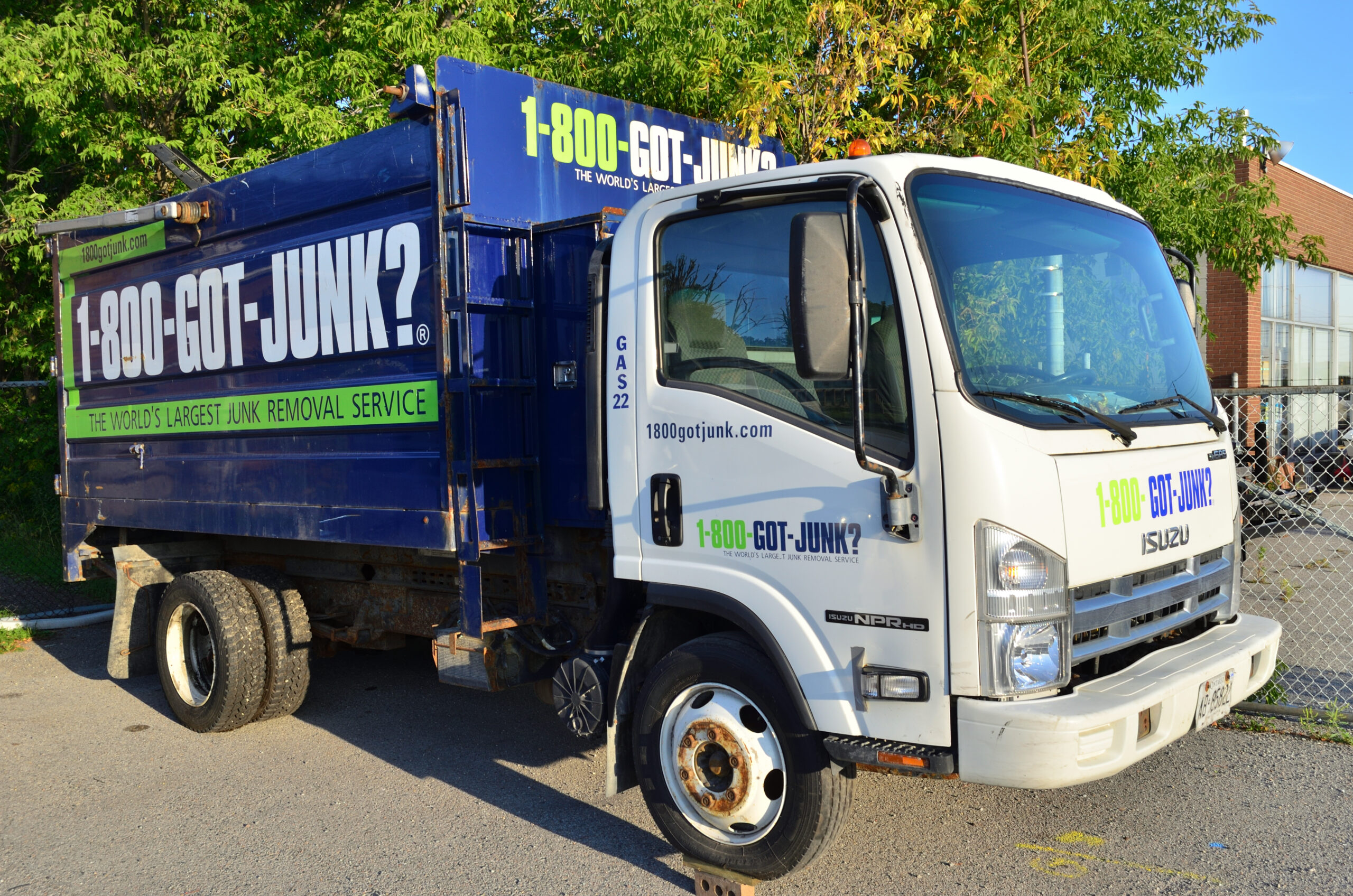1800 Got Junk What Do They Do With The Junk
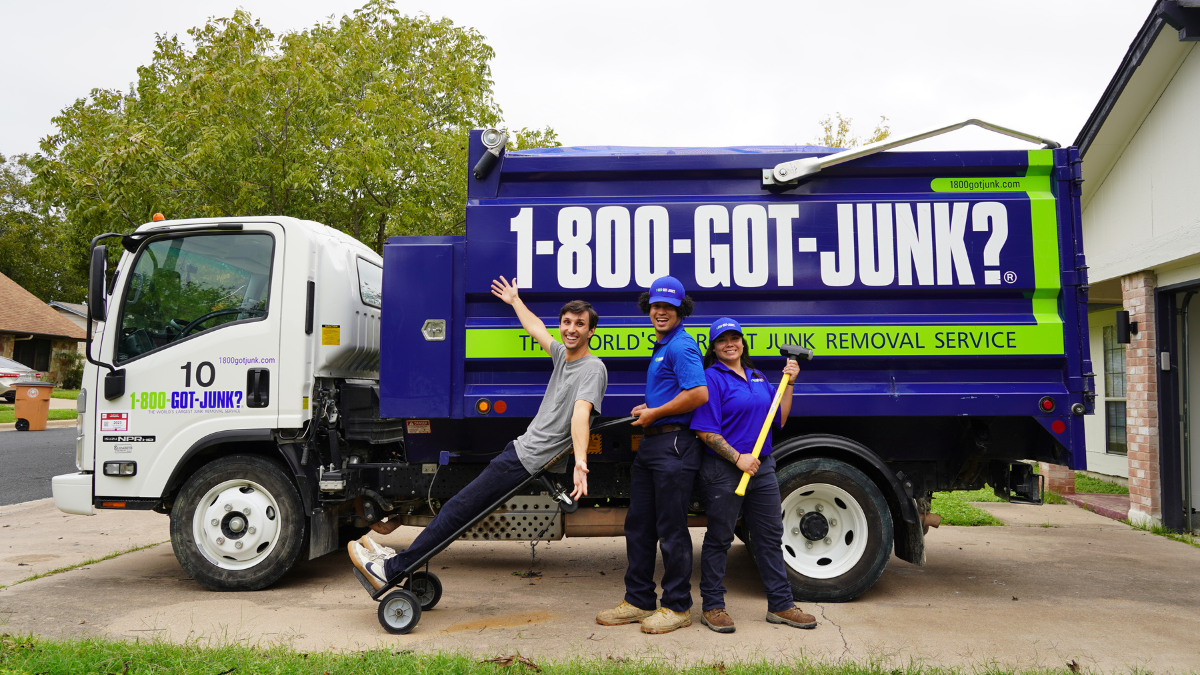
The ubiquitous blue and green trucks of 1-800-GOT-JUNK? are a familiar sight in neighborhoods across North America, promising a swift and easy solution for decluttering. But once that unwanted furniture, appliances, and general household refuse disappear into the back of their vehicles, where does it all actually go?
This question is at the heart of increasing consumer awareness around responsible disposal and the growing emphasis on environmental sustainability. Understanding the company's practices is crucial for consumers aiming to make informed decisions about their waste management options.
Beyond the Landfill: A Multi-Faceted Approach
1-800-GOT-JUNK? maintains that its primary goal is to divert waste from landfills. The company emphasizes a "recycle, donate, and dispose" approach, prioritizing environmentally conscious practices whenever possible. This commitment is reflected in their franchise model, which encourages local operators to establish relationships with various recycling centers, donation organizations, and disposal facilities.
According to the company's website, the process begins with on-site sorting by the junk removal team. Usable items, such as furniture, clothing, and household goods, are identified for potential donation. These items are then transported to local charities and non-profit organizations.
Items deemed unsuitable for donation are further sorted for recyclable materials. Metals, paper, cardboard, plastics, and electronics are separated and delivered to designated recycling centers for processing.
Materials that cannot be recycled or donated are ultimately transported to landfills or waste-to-energy facilities. The company acknowledges that landfill disposal is sometimes unavoidable but strives to minimize its reliance on this option.
Franchise Flexibility and Local Implementation
The 1-800-GOT-JUNK? model operates through franchised locations. This decentralized structure allows for adaptability to local regulations and resource availability.
The effectiveness of the company's diversion efforts can vary depending on the specific franchise location and the infrastructure available in its service area. While some franchises may have robust recycling programs and established relationships with numerous charities, others may face limitations due to local circumstances.
Consumers are encouraged to inquire about the specific practices of their local 1-800-GOT-JUNK? franchise to gain a better understanding of their waste disposal procedures.
Transparency and Future Goals
The company acknowledges the importance of transparency in its operations. 1-800-GOT-JUNK? regularly publishes information about its environmental initiatives and waste diversion rates.
While specific data can fluctuate from year to year, the company consistently reports a significant portion of collected items being diverted from landfills through recycling and donation efforts.
1-800-GOT-JUNK? has also publicly stated its commitment to continuous improvement in its sustainability practices. This includes exploring new technologies and partnerships to further reduce its environmental impact.
The junk removal industry as a whole is facing increasing pressure to adopt more sustainable practices. Consumers are demanding environmentally responsible solutions, and regulatory bodies are implementing stricter waste management requirements.
By focusing on diverting waste from landfills and prioritizing recycling and donation efforts, 1-800-GOT-JUNK? aims to position itself as a leader in responsible junk removal.
Ultimately, understanding where your junk goes after it leaves your curb requires diligence. Contacting your local franchise and asking specific questions remains the best way to ensure your values align with their disposal practices.
